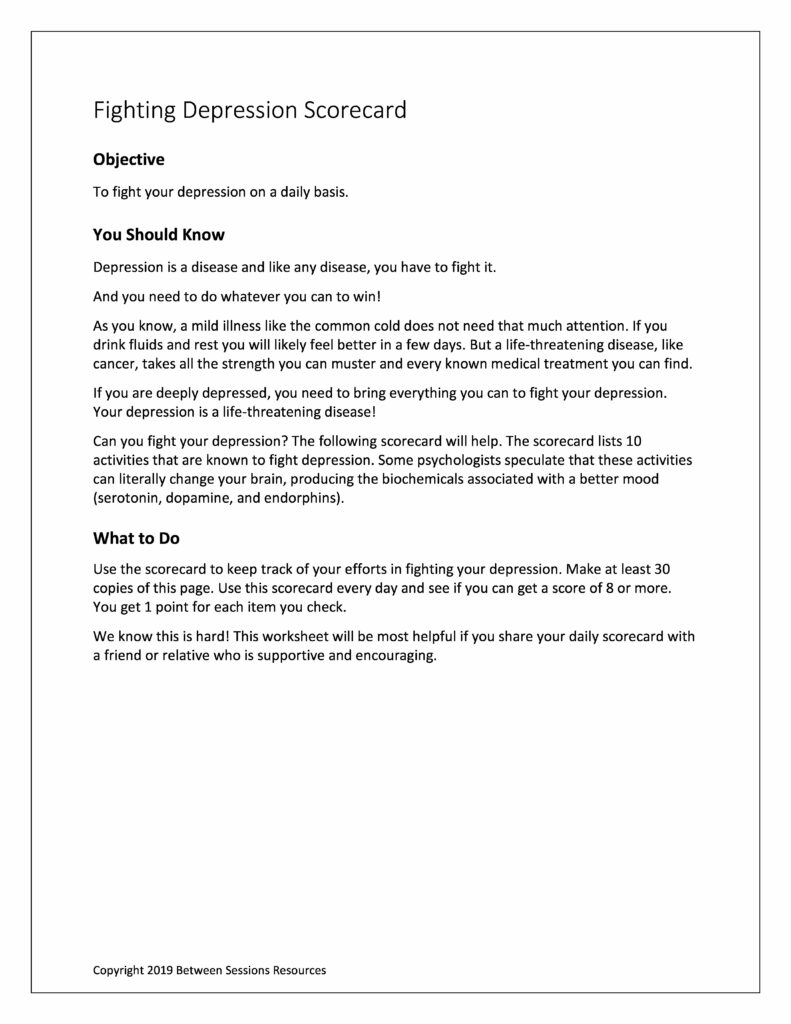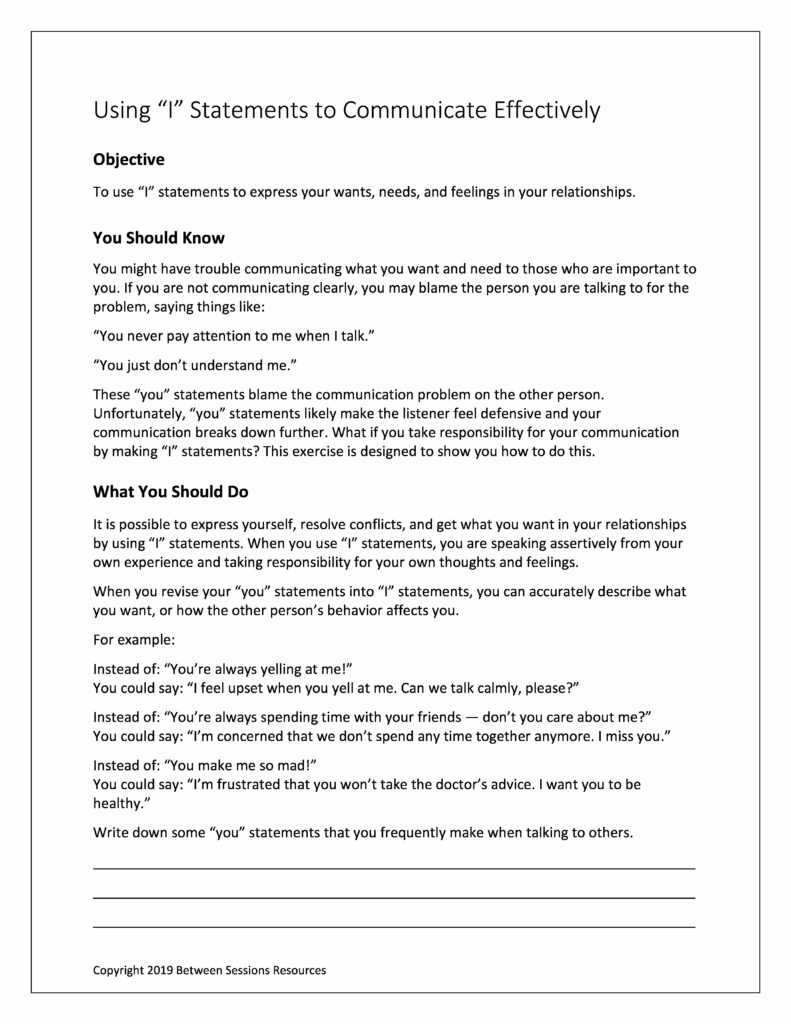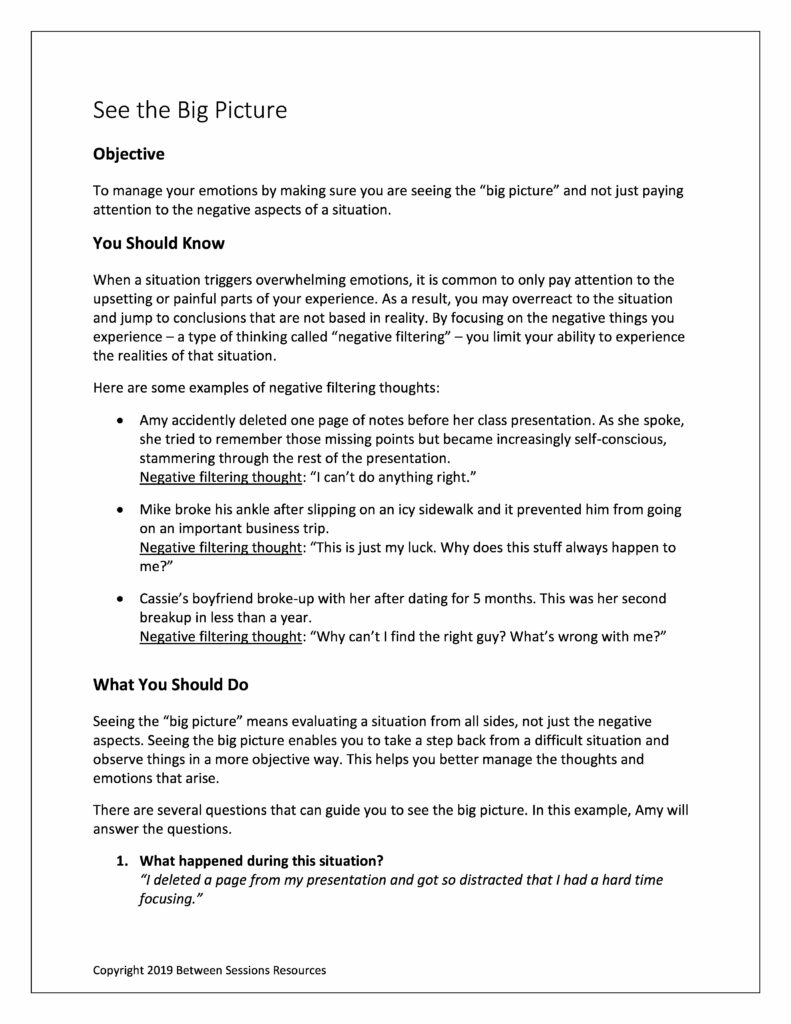Studies tell us that when professionals prescribe therapeutic homework, clients report significantly better outcomes. Our worksheets are derived from evidence-based therapies, and they are designed by experienced professionals. Use the navigation links on the left of this page to view tools in a specific category. Or use the search box at the top of this page to find the exact tool you are looking for.
To modify the tools, click the ‘Send to Client’ button by each tool to open the Psychology Forms Filler. You can then edit the tool as you see fit and either print it out or send it to a client to be filled out online. Click here for a tutorial on using the Psychology Forms Filler.
If you can’t find what you are looking for on this site, please let us know by
clicking here and our team of writers, graphic artists, and therapists will custom-design it for you.
This worksheet teaches the importance of values and on basing goals and intentions on those values. It asks clients to identify their core values, think about goals and steps to live those values, and then rehearse them. (ACT, DBT, 1119)
This worksheet is designed to help people identify their unhealthy and self-defeating behaviors and substitute them with positive behaviors. The intent is to help people develop a positive cycle of positive behaviors and emotions. (DBT, behavioral therapy, Bi-Polar Disorder, 1119)
This worksheet is designed to help people reduce their screen time when it has taken on an addictive role in their lives. It gives them suggestions on how to be more aware of their cell phone and mobile device usage and a chart to keep track of their efforts. (addiction, prevention, 1119)
This worksheet is designed to help people see the relationship between their lifestyle and physical health and their ability to regulate their emotions. (DBT, 1119, anxiety, depression)
This worksheet helps people reflect about their communication with others and whether or not they are expressing their values and getting their needs fulfilled. It teaches a two-step technique to designed to help people be assertive without offending others. (assertiveness, communication, interpersonal effectiveness, 1119)
This worksheet challenges depressed clients to do 10 things each day to fight their depression and to keep track of their behaviors and moods for a month. The suggested activities are known to increase mood elevating biochemicals in the brain. The activities will also help people with anxiety and other mental health problems (1019).
This groundbreaking workbook provides over 50 worksheets and exercises to treat people who have experienced a mild to significant trauma. The workbook provides tools to handle symptoms like hallucinations, impulsivity, sexual dysfunction, derealization, and more. It goes on to help people develop the psychological skills to lead a joyful and fulfilling life.
This worksheet teaches people to express their thoughts, feelings, and needs more directly using “I” statements. (communication, interpersonal effectiveness, DBT, 1019)
This worksheet is designed to help people assess their motivation to tackle the problem of binge eating. (eating disorder, 1019)
This worksheet is designed to help people regulate emotions by seeing the big picture rather than on just focusing on the negative aspects of a situation. The exercise is designed to help people evaluate problems accurately and objectively. (DBT, emotional regulation, 1019)










